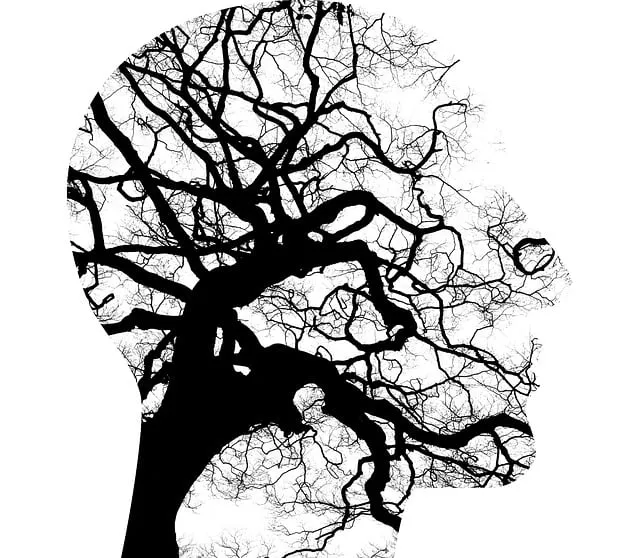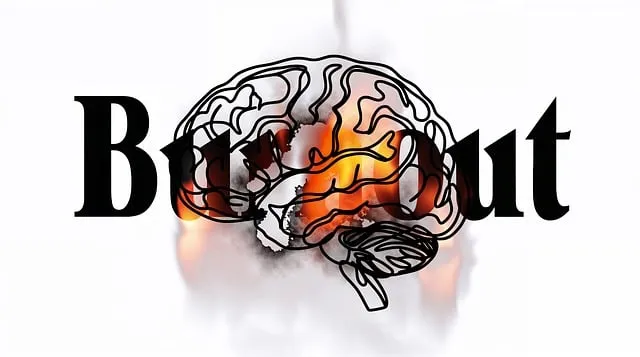Emotional intelligence (EI), crucial for personal growth and success, is enhanced by the Parker Kaiser Permanente (PKP) mental health department through programs like Risk Management Planning, Stress Management Workshops, and Mental Wellness Coaching. Key EI components include self-awareness (cultivated through introspection and mindfulness), empathy (fostering deeper connections and understanding), and emotion regulation (managed through techniques like deep breathing and meditation). The PKP mental health department offers accessible resources via their phone line, focusing on EQ development, stress reduction, stigma reduction, and burnout prevention.
Emotional intelligence (EI) is a cornerstone of personal growth and successful human connections. Understanding EI involves recognizing its multifaceted nature, with self-awareness playing a pivotal role in enhancing it. This article explores key aspects of EI development, including strategies to foster empathy and manage emotions effectively. Drawing insights from the Parker Kaiser Permanente Mental Health Department, we offer practical steps for cultivating EI, empowering individuals to lead more fulfilling lives. For more information and resources, contact the Parker Kaiser Permanente mental health department at [phone number].
- Understanding Emotional Intelligence: A Foundation for Personal Growth
- The Role of Self-Awareness in Enhancing Emotional Intelligence
- Developing Empathy: Building Stronger Human Connections
- Managing and Regulating Emotions Effectively
- Practical Strategies from Parker Kaiser Permanente Mental Health Department for IQ Growth
Understanding Emotional Intelligence: A Foundation for Personal Growth

Emotional intelligence (EI) is a powerful tool for personal growth and development. Often described as “emotional literacy,” it involves recognizing, understanding, and managing your own emotions, as well as empathizing with others. This ability to navigate complex human interactions with awareness and sensitivity is increasingly recognized as a cornerstone of success in both personal and professional spheres.
At the Parker Kaiser Permanente mental health department (phone number: [insert number]), we emphasize the importance of EI in our programs, such as Risk Management Planning for Mental Health Professionals, Stress Management Workshops, and Mental Wellness Coaching Programs Development. By fostering emotional intelligence, individuals can improve their relationships, make better decisions, and enhance overall well-being. This is particularly crucial in today’s fast-paced world where stress and uncertainty are prevalent, making effective stress management techniques essential for maintaining mental health.
The Role of Self-Awareness in Enhancing Emotional Intelligence

Self-awareness is a cornerstone of emotional intelligence, enabling individuals to recognize and understand their own emotions. This vital skill is fostered through introspection, where one explores their thoughts, feelings, and behaviors. By developing self-awareness, people can better navigate their emotional responses, leading to improved decision-making and enhanced relationships. For instance, individuals may identify triggers for stress or anger and learn healthier coping mechanisms, thereby reducing potential conflicts in personal and professional settings.
The process of cultivating self-awareness often involves seeking feedback from trusted sources, such as friends, family, or professionals like those within the Parker Kaiser Permanente mental health department (phone number available upon request). This feedback can provide valuable insights into one’s emotional patterns and areas for improvement. Additionally, practicing mindfulness techniques, such as meditation or journaling, helps individuals stay grounded in the present moment, fostering a deeper connection with their emotions and promoting empathy building strategies.
Developing Empathy: Building Stronger Human Connections

Developing empathy is a cornerstone of emotional intelligence, fostering stronger human connections and enhancing relationships both personally and professionally. It involves understanding and sharing the feelings of others, enabling individuals to build deeper, more meaningful bonds. This skill is crucial in various aspects of life, from improving family dynamics to resolving conflicts within communities.
At Parker Kaiser Permanente’s mental health department (phone number: [insert number]), professionals emphasize empathy-building strategies as part of comprehensive emotional intelligence development. By teaching coping skills and conflict resolution techniques, they help individuals navigate challenging situations with greater compassion. These approaches not only promote better communication but also create a supportive environment where everyone feels heard, respected, and valued.
Managing and Regulating Emotions Effectively

Managing emotions is a cornerstone of emotional intelligence and a skill that can be cultivated over time. Effective emotion regulation involves recognizing and understanding your feelings, accepting them as valid experiences, and learning to manage their intensity. This process empowers individuals to respond rather than react impulsively, fostering healthier interactions with others. For instance, a simple yet powerful technique is mindfulness, which encourages staying present in the moment and observing emotions without judgment, a practice that has been championed by the Parker Kaiser Permanente mental health department for its community outreach program implementation.
By integrating stress reduction methods, such as deep breathing exercises or meditation, individuals can gain better control over their emotional responses. These practices not only help manage acute stress but also contribute to long-term resilience. Moreover, effective emotion regulation is crucial in risk management planning for mental health professionals, enabling them to maintain composure and provide consistent care under pressure. This skill set allows professionals to navigate challenging situations with poise, ultimately benefiting their clients.
Practical Strategies from Parker Kaiser Permanente Mental Health Department for IQ Growth

The Parker Kaiser Permanente Mental Health Department offers valuable insights and practical strategies for emotional intelligence (EQ) growth, accessible through their dedicated phone line. They emphasize self-awareness as a cornerstone for EQ development, encouraging individuals to reflect on their emotions and triggers. Techniques such as mindfulness meditation, journaling, and cognitive reframing help users gain perspective and manage stress effectively.
By integrating these practices into daily routines, the department aims to reduce anxiety relief and address underlying mental health concerns. Furthermore, they address the crucial aspect of Mental Illness Stigma Reduction Efforts, promoting understanding and empathy within communities. Their initiatives also extend to Burnout Prevention, providing tools for setting boundaries and cultivating resilience in demanding environments.
Emotional intelligence is a powerful tool for personal growth, and by understanding its components, we can build stronger connections and lead more fulfilling lives. The strategies provided by the Parker Kaiser Permanente Mental Health Department offer practical ways to enhance self-awareness, develop empathy, and manage emotions effectively. For those seeking support, contacting the department at [Parker Kaiser Permanente mental health department phone number] can open doors to further resources and guidance on nurturing emotional intelligence.






